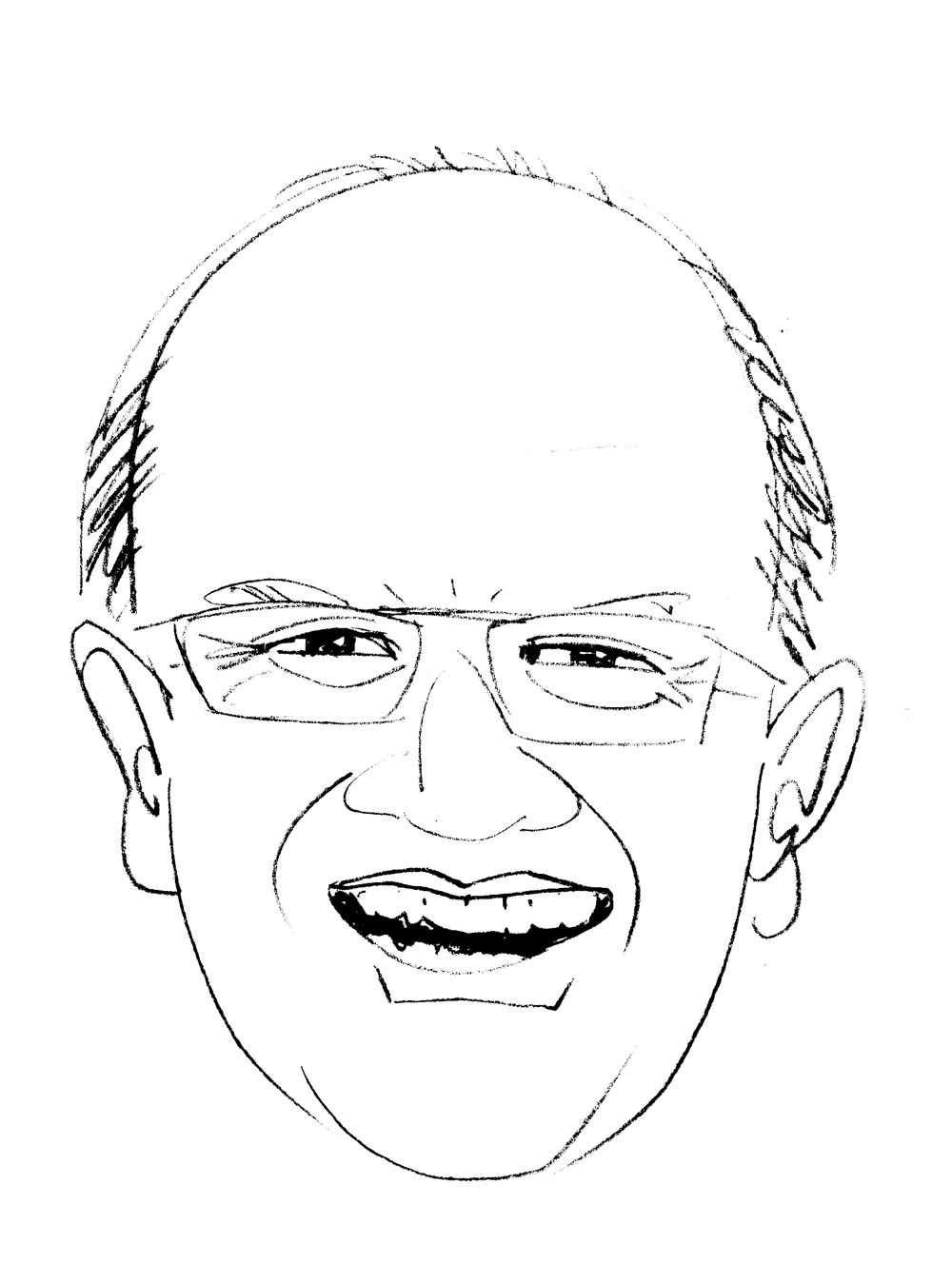
Sumit Ganguly is no fan of Narendra Modi the Gujarat chief minister, essentially because of the carnage that happened on his watch in the state in 2002. But when it comes to Modi's foreign policy, the US-based political scientist is all praise.
He particularly credits the PM with formulating a "more assertive and muscular" China policy.
Ganguly is in town to spend time with his ailing mother. He left Calcutta in 1973 after clearing his school-leaving exams and currently lives in the United States where he holds the Rabindranath Tagore Chair in Indian Cultures and Civilisations at Indiana University. We are meeting at a noisy Park Street restaurant, his favourite.
The 61-year-old academic, who has written several books on politics and conflicts in Asia, is talking about how Modi initially made the "same mistake" as outgoing US President Barack Obama. "He thought a policy of conciliation to China would make it sympathetic to India's concerns; provide a possible pathway to the resolution of the border dispute between the two countries."
Modi subsequently invited Chinese President Xi Jinping to Ahmedabad. But just as the red carpet was rolled out for the Chinese premier, border incursions by Chinese troops were reported in Ladakh. "That was a turning point," Ganguly notes.
Ganguly says the Indian PM was quick to realise that his attempts at a conciliatory diplomacy had "failed miserably" and India needed to adopt a "tougher" line. Foreign secretary Subrahmanyam Jaishankar also strengthened his resolve. Ganguly remarks that this is where Modi is different from his predecessor Manmohan Singh whose China policy involved continued "conciliation while building up capabilities along the borders".
He points to how post policy shift, the Indian PM let the Dalai Lama visit Mongolia last November despite China's objections. The BJP government has also cleared the Tibetan leader's proposed March visit to Tawang in Arunachal Pradesh - a geography China claims is part of Tibet.
With the successful test of Agni V, the nuclear missile that can travel some 5,000 kilometres, Ganguly says India is now capable of hitting targets in China, which humiliated India militarily in 1962. But what about the much-talked-about China-Pakistan axis?
"That axis has long existed. It is just that China is now becoming more assertive and deepening its relations with Pakistan to tie India down," comes the prompt reply. Ganguly considers Pakistan "not much of a threat", more of an irritant with "considerable nuisance value".
But is there indeed a possibility that China might help Pakistan in the event of an Indo-Pak war? Ganguly believes that while the Chinese might not join the war officially, they could very well deploy some troops along their border without firing a shot. And if that happened, India would be forced to shift part of its troops from the Line of Control to its borders with China, benefiting Pakistan.
China did something similar in the 1965 Indo-Pak war, he points out. "They deployed some troops along their borders and issued a strange ultimatum to India, having accused it of abducting some Chinese citizens, sheep and yaks," says the man who has authored Deadly Impasse, a 2016 book on relations between India and Pakistan.
Fortunately for India, he says, the 1965 war ended fairly quickly before China could deliver on its threat. But against that backdrop, what are India's options today?
The David-Goliath defence spending notwithstanding - China spent $150 billion in 2016 against India's $36.5 billion - Ganguly feels careful diplomacy and nurturing of relationships, new and old, could help. He talks of the need to bolster relations with neighbours Nepal, Bangladesh and Sri Lanka to limit Chinese influence in the region.
Which gets us to Pakistan. For all the praise he has heaped on Modi for his tactical play with China, he can't get over the way he went public with the cross-border surgical strike last September. He agrees it was politically and strategically necessary to announce the strike, but briefly. "But they went to a ridiculous extent, touting it on television. That was not only unnecessary but also counter-productive."
He also suggests improving ties with the US. Even on Donald Trump's watch? Ganguly seems to think it is possible. A US-India strategic partnership can be sustained under the Republican regime. "Trump seems fairly hostile to China and despite his foolish phone call to Pakistani premier Nawaz Sharif, his advisers will realise that the only real partner in Asia, other than Australia and Japan, is India, to not necessarily contain but balance China."
Simultaneously, India needs to bolster its ties with Japan and South Korea, while keeping Vietnam and Taiwan close. The decision to supply Brahmos missiles to Vietnam is "right", and he says he knows for a fact that India has already made overtures to Taiwan and offered to upgrade its trade office.
But won't opening full-fledged diplomatic relations with Taiwan spell trouble? He agrees it could. "China has an absolute obsession with Taiwan. They feel it is just a matter of time before 'the renegade province' gets integrated into the People's Republic of China.''
But with China determinedly going ahead with the $54 billion China Pakistan Economic Corridor that runs through Pakistan-occupied Kashmir, Ganguly believes India needs to "raise the costs" to China.
"In a note, the ministry of external affairs has now carefully avoided reaffirming that Tibet is an integral part of China," Ganguly points out. If China continues blocking the move to ban Pakistan-based terrorist Masood Azhar at the UN, he says India could well declare that it won't recognise Tibet as a part of China.
But all this diplomatic tip-toeing will amount to nothing if India doesn't modernise its military. Ganguly talks about the "complete breakdown" of the weapons acquisition process. "Take the medium multi-role combat aircraft, the requirement for which is 126. But only 36 have been acquired. The Indian Air Force has a sanctioned strength of 43 squadrons. But that has now fallen to 33 because of retirement of ageing aircraft and slow acquisition of new aircraft." Things are no better in the army and navy; the navy badly needs submarines and the army new generation battle tanks and artillery. War, as they used to say, is also diplomacy, but by other means.
tetevitae
1973: Ganguly leaves for the US. His father Romendranath is at the time superintendent of the Asansol Special Jail, while mother Nandini is a marketing research supervisor at Hindustan Lever
1983: Starts as visiting lecturer at University of Illinois, Urbana/Champaign, after doing his master's in political science from Miami.
1984: Receives his doctorate from the University of Illinois.
While his books focus on politics, trade and diplomacy, he is big on fiction from Hemingway to Jhumpa Lahiri










